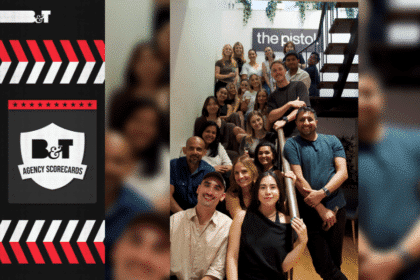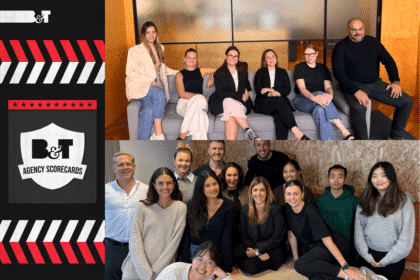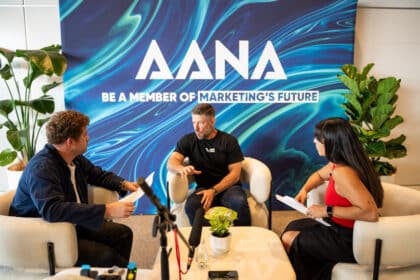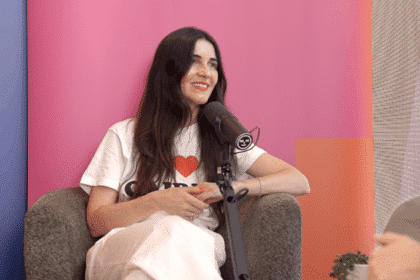Australia has long been a trailblazer in cancer control, with over 100,000 lives saved in the last 25 years thanks to advancements in research, prevention, and care. Public health campaigns, particularly those led by Cancer Council Australia, have played an integral role in this success by raising awareness, shifting public attitudes, and encouraging healthier behaviours.
The fight against cancer is far from over. Skin cancer remains Australia’s most common, costly, and preventable cancer, while bowel cancer continues to take an average of 100 lives each week.
With World Cancer Day falling earlier this week and the need for awareness at an all-time high, B&T sat down with Melody Chew, director of Cancer Control campaigns and communications at Cancer Council Australia, to discuss the significance of these campaigns and which ones have made the most impact.
“Public health campaigns, including those delivered by and in partnership with Cancer Council, have contributed immensely to reducing the impact of cancer in Australia. Around one-third of all cancer deaths in Australia are caused by modifiable (behavioural or lifestyle) risk factors,” Chew told B&T.
“Ongoing investment in evidence-based cancer prevention campaigns is vital to address these modifiable risk factors, increase public awareness, and motivate behaviour and lifestyle changes to reduce the burden of preventable cancers in Australia”.
From iconic initiatives to innovative modern campaigns, these efforts showcase the power of education and collaboration in the fight against cancer.
Slip, Slop, Slap, Seek, and Slide
Few campaigns are as iconic in Australia’s public health history as Slip, Slop, Slap, Seek, and Slide. Initially launched in the 1980s with the memorable mascot Sid the Seagull, this campaign evolved over time to address additional sun safety measures, including seeking shade and wearing sunglasses.
Its impact is undeniable: melanoma rates among Australians have decreased significantly across generations since the campaign’s inception. “We know the use of sun protection increases when skin cancer prevention campaigns are in market,” Chew explained.
End the Trend
In a bold move to combat Australia’s obsession with suntanning, the Cancer Council partnered with the Australian Government to launch the End the Trend campaign. The initiative targeted young Australians by enlisting influencers, celebrities, and media to challenge outdated and unhealthy attitudes about tanning.
“This was a first-of-its-kind public health campaign leveraging the very voices who are known to glamourise a suntan to make sun protection aspirational,” said Chew.
The campaign achieved remarkable results, with a 50 per cent increase in young Australians reporting they were more likely to use sun protection after engaging with multiple campaign messages.
Save Your Skin 2023/24
Another recent triumph, the Save Your Skin 2023/24 campaign, was designed to reach Australian men, who are statistically more likely to develop skin cancer. The campaign’s messaging reached three in five men, and two-thirds reported taking greater precautions to protect their skin.
While the results are promising, Chew said, “there is more work to do to erode these dangerous suntanning attitudes and behaviours”.
“Skin cancer is Australia’s most common, most costly and most preventable cancer. This summer, we’ve also seen dangerous online trends where young people are still believing tanlines are desirable and are seeking sunburns and suntans. We can shift these dangerous attitudes and stop skin cancer trending if media, industries and influential voices come together to challenge Australia’s suntanning obsession,” Chew said.
“The incoming federal government also has an integral part to play and must continue investing in skin cancer prevention campaigns as we work towards a future free of skin cancer”.
National Bowel Cancer Screening Program: Get2it
Cancer Council’s work extends beyond skin cancer to other preventable cancers, including bowel cancer—the second-largest cause of cancer-related death in Australia. Through the Get2it campaign, the Cancer Council supported the Australian Government in encouraging Australians aged 45 to 74 to complete their bowel cancer screening tests.
The impact of this initiative has been substantial. In 2021-2022 alone, 240,000 additional screening kits were returned, saving an estimated 850 lives. Yet, with only 40 per cent of eligible Australians participating in the program, there is room for improvement.
“If participation increased to 60 per cent, 84,000 lives could be saved by 2040,” noted Chew. “But this cannot be done without ongoing support from the federal government.”
Strengthening Australia’s Legacy
Public health campaigns have proven their ability to create lasting change, but ongoing efforts are critical to reducing preventable cancers. As we reflect on these campaigns this World Cancer Day, we are reminded of the power of education and collaboration in shaping a healthier future for all Australians.
“Australia must strengthen its legacy of global leadership in cancer control and care with further investment in cancer research, prevention, and care to save more lives,” Chew said.
Together, we can continue the fight to save lives and reduce the burden of cancer in Australia.








